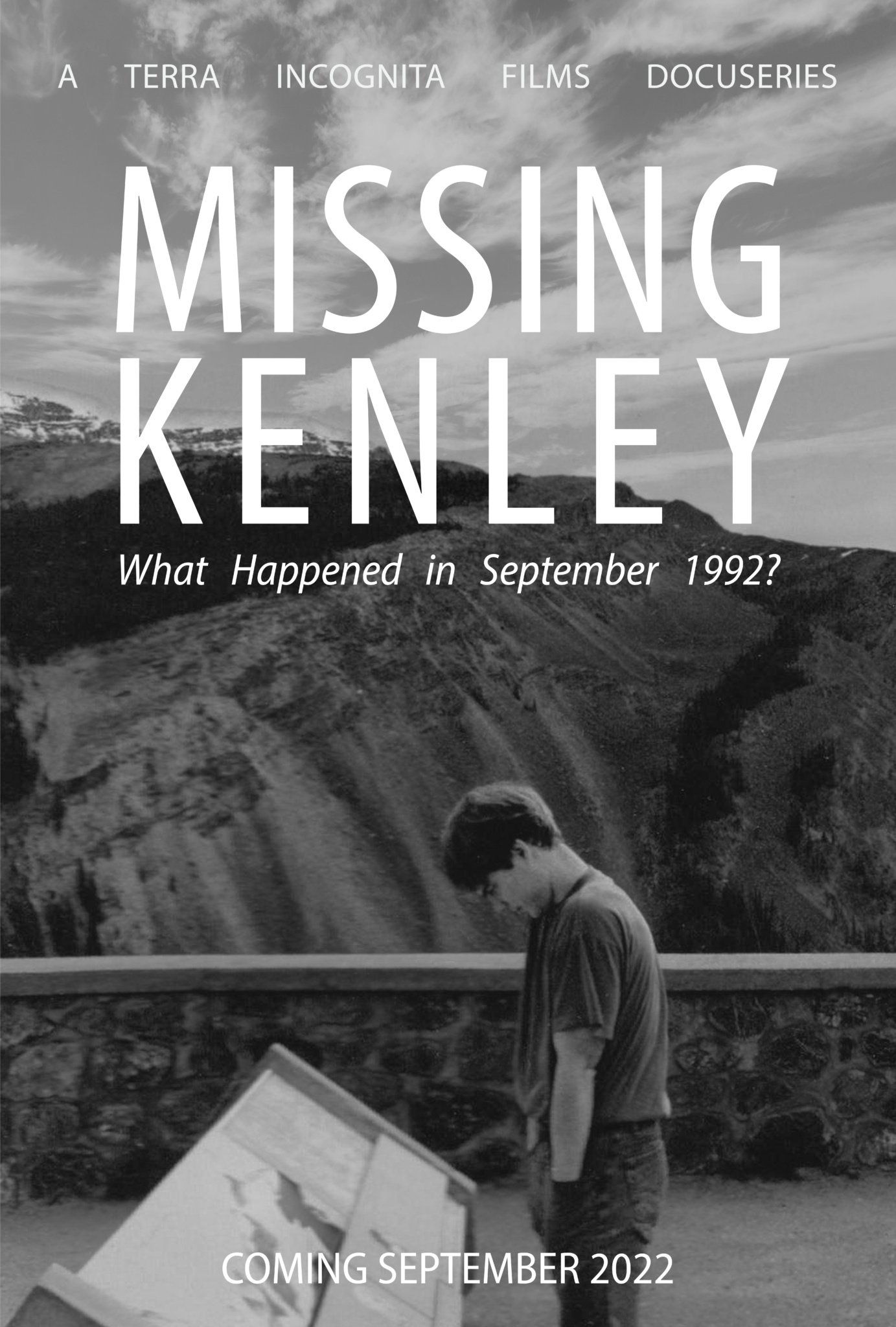Missing Kenley: a brand-new docuseries that is now available on multiple streaming platforms for people to watch and learn more about Kenley Matheson’s disappearance, who he was, and what he meant to people.
Kenley Matheson was a freshman at Acadia University in 1992, when suddenly he disappeared without a trace a few weeks into the semester. The 30-year anniversary of his disappearance was on September 21st of this year, the same day that the new five-episode, 10-part series premiered at the Al Whittle Theater in Wolfville.
I had the opportunity to ask the producer and director, Ron Lamothe, a few questions about the docuseries and the 10 years’ worth of work that went into it.
For the students or community members who don’t know, who is Kenley Matheson?
Kenley Matheson was a 20-year-old first-year Acadia student back in September 1992 who went missing two weeks into his first semester. Kenley was from Glendale, Cape Breton, and came to Acadia University that fall with his 18-year-old sister Kayrene. During the two years prior, his “motorcycle gap years,” he rode across Canada, spent a summer working in Banff, planted trees in British Columbia, and traveled through Central America.
What were the events leading up to his disappearance?
The last person to see Kenley was his new Acadia friend Tom Gordon, a British exchange student that academic year. Tom saw Kenley walking down Main Street by the Al Whittle Theatre on Monday afternoon, September 21st, 1992. Kenley’s bank account was never touched, and no one in his family ever saw him again.
What is this docuseries about?
The 5-episode investigative docuseries re-examines every theory as to what may have happened to Kenley that September – from potential foul play to the possibility that he is still alive – while also exploring the memory of him that still resides among family members and friends.
What was it like to spend the years that you did following this case and being able to document it? What did you get out of it, and are there any key parts that you took away after filming this?
It was an incredible journey. I am especially grateful to Kenley’s family, most notably Sarah MacDonald, Kenley’s mother, and Kayrene Willis, Kenley’s sister, for entrusting me with this story. Their belief, commitment, hospitality, faith, and patience were remarkable, for which I am eternally grateful.
One thing that hasn’t changed, and has grown even deeper over the years, is my commitment to Kenley Matheson. For every challenge I’ve faced, every risk I’ve taken, all the 12-hour drives up here from Massachusetts, the hundreds and hundreds of hours in the editing room, it was Kenley who kept me going, Kenley who pulled me through. Every decision I’ve made – and especially in recent years as I’ve seen certain things play out – is centered around my absolute loyalty to Kenley, and what I believe will have the greatest impact on the case and provide the greatest likelihood of justice for Kenley and his family. This deep commitment to Kenley has driven every choice I’ve made, dictated what I’ve shared or not shared and with whom, and was at the heart of every action I’ve taken.
Finally, what do you want people to learn from this?
On the surface, a thirty-year-old cold case set in Nova Scotia seems a rather obscure and enigmatic subject for a documentary series. And yet its themes – notably the ineptitude of the criminal justice system in unsolved homicides and missing person cases – are more universal, and identifiable, and transcend this obscurity. And for the Matheson family, what could be more relevant, and timelier, and important than finally solving the mystery of what happened to their son and brother – a mystery it seems no one cares enough about to solve? Indeed, what is more timeless than the meaning of memory, or of loss? Ultimately, Missing Kenley is a filmmaker-driven piece in the tradition of the Paradise Lost trilogy and true crime series such as The Jinx and Making a Murderer. Although criminal justice themes are important to the series, the key hook of Missing Kenley is an intellectual one: the binge-worthy appeal of a compelling, and multifaceted, and obsessively-detailed detective story the likes of which audiences have never come across. At its core is the same kind of “unsolved mystery” hook that has been pulling in true crime bingers for years – the cold case is introduced, and we feel that intense need to know what in the world happened to Kenley that September at Acadia University in 1992. Viewers on this detective-story roller coaster ride will begin to feel as if they are working the case themselves, trying to solve it as it unfolds before them. Like the subgenre’s progenitor The Thin Blue Line, it is my hope that Missing Kenley satisfies audiences in its obsessive re-examination of the case details, as new evidence becomes more about the pursuit of truth and finding out what really happened, and drives the series forward.
Those who are looking to stream the new docuseries Missing Kenley can watch it on:
Amazon Prime – https://www.primevideo.com/detail/0N2H9PCPFW4RUK2R5FZGC0T3CR/ref=dvm_src_ret_ca_xx_s
Vudu – https://www.vudu.com/content/movies/details/Missing-Kenley-Season-1/2091255
Google Play – https://play.google.com/store/tv/show/Missing_Kenley?id=B5E3_mJBz-U.P&hl=en_CA&gl=US
Vimeo on Demand – https://vimeo.com/ondemand/missingkenley




